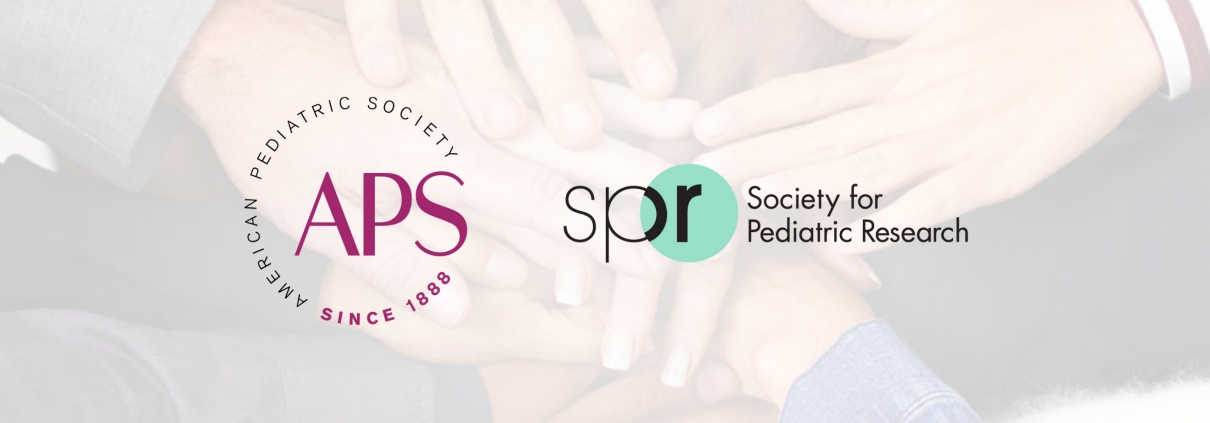Pediatric Policy Council Update
The APS and SPR are members of the Pediatric Policy Council (PPC) which actively advocates for children and academic pediatrics at the federal level. APS representatives to the PPC are Drs. DeWayne Pursley and Jonathan M. Davis; Drs. Joyce Javier and Shetal Shah represent the SPR.
The PPC also includes representatives from the Academic Pediatric Association (APA) and the Association of Medical School Pediatric Department Chairs (AMSPDC). The PPC is based in the Washington DC office of the American Academy of Pediatrics (AAP), who supplies staff and other support.
The latest advocacy developments are summarized by the PPC below
PPC CAPITOL CONNECTION
May 14, 2021
What Matters Now in Washington:
- Julie Morita of the Robert Wood Johnson Foundation joined the Pediatric Policy Council for a discussion on policies critical to advancing child health equity in the era of COVID-19 and calls for racial justice. More…
- The Biden administration is marshalling support for expansive investments in America’s physical and human infrastructure, but it faces challenges in the face of Republican opposition and competing priorities among Democrats. More…
- Pfizer-BioNTech received authorization to use its COVID-19 vaccination in 12- to 15-year-olds, but global vaccination lags threaten to undermine progress in ending the pandemic. More…
- The National Institutes of Health (NIH) has rolled back some restrictions on the use of human fetal tissue in biomedical research that was put in place during the Trump administration despite outcries from the research community. More…
- Members of the PPC were published in national news outlets on important child health issues. More…
Now Available: Pediatric Policy Council (PPC) Webinar
Policies to Advance Child Health Equity: A Conversation with Dr. Julie Morita

Pediatrician and child health policy expert Dr. Julie Morita speaks with Pediatric Policy Council leaders on a broad range of child health policy topics, including COVID-19 vaccine rollout, child mental health, and food insecurity.
Hear important insights on child health policy priorities as the nation continues to grapple with the COVID-19 pandemic and address longstanding health inequities that prevent communities of color and others from reaching their full health potential. Please share widely.
Featured Speaker:
Julie Morita, MD
Executive Vice President
Robert Wood Johnson Foundation (RWJF)
Former Commissioner of the Chicago Department of Public Health
Moderators:
Tina Cheng, MD
PPC Representative, Association of Medical School Pediatric Department
Chairs:
Steven Abman, MD
President, American Pediatric Society
Stephanie Davis, MD
President, Society for Pediatric Research
Shetal Shah, MD
Chair, Pediatric Policy Council
With Pandemic Relief in the Books, Democrats Turn to Long-Term Infrastructure Investments. President Joe Biden has unveiled ambitious plans to plow trillions of dollars into the U.S. economy and make good on his campaign promise to “Build Back Better” from the coronavirus pandemic. His investments are intended to address structural ills laid bare by the pandemic, such as long-running health inequities plaguing communities of color and underinvestment in supports for American families and public institutions. The proposals, split between two initiatives known as the American Jobs Plan and the American Families Plan, amount to roughly $4 trillion in new federal spending financed through a mix of tax increases on high-income earners and corporations. Taken together with the American Rescue Plan—passed into law in March—Biden’s agenda comprises over $6 trillion in domestic spending.
The $1.8 trillion American Families Plan includes numerous key priorities for children and families, including ambitious investments in early childhood and childcare. The Biden proposal calls for $200 billion to provide free preschool to all 3- and 4-year-olds, $225 billion to subsidize child care for families with direct subsidies to low- and moderate-income families, and $225 billion to create a national family and medical leave program. He has also called for enhancements to the Child Tax Credit provided in the American Rescue Plan to be extended through 2025 and for enhanced premium support for health plans through the Affordable Care Act’s individual marketplace to be made permanent. Pediatricians and children’s advocates have praised the visionary proposals outlined in the American Families Plan for their potential to dramatically improve the health and well-being of children and families.
The American Jobs Plan, on the other hand, proposes investments in physical infrastructure left crumbling from years of deferred maintenance. The $2 trillion initiative would overhaul and upgrade America’s roads, bridges, public transit, airports, and other major public works projects, build broadband infrastructure to reach every home with affordable high-speed internet, and spur the development of electric vehicles. The proposal would also leverage these investments to address structural inequities that have led to racial injustice, as well as climate change. The Biden administration anticipates the proposal will create millions of jobs.
Ultimately, it is up to Congress to determine the extent to which Biden’s proposals are ultimately enacted into law, and, with narrow majorities in both the House and Senate, Democrats have their work cut out for them in crafting a package that may need to pass without Republican votes.
Advocates across health care and elsewhere are pushing for inclusion of their top priorities in whatever legislative package Congress ultimately assembles, with the appetite for federal spending greater than it’s been in years. The PPC recently joined a broad array of biomedical research advocates to call on Congress to invest in research infrastructure. Such an investment would include $10 billion to address pandemic-related costs to the research enterprise, as well as additional funding to upgrade intramural and extramural research facilities at the NIH and grantee institutions. Similar efforts to secure funding for new investments in an infrastructure package for priorities like health care infrastructure are also underway.
Vaccine Authorizations Will Begin to Expand Access for Young People, But Significant Hurdles Remains to Vaccinating the World. In a significant step forward, the Food and Drug Administration (FDA) and the Centers for Disease Control and Prevention recommended use of the Pfizer-BioNTech COVID-19 vaccine in adolescents aged 12 to 15, increasing the number of young people eligible for a vaccine significantly. Moderna has similarly requested that FDA authorize use of their mRNA vaccines in adolescents after trials demonstrated high efficacy and safety in young people. Separately, Pfizer-BioNTech submitted an application Friday requesting full FDA approval for its COVID-19 vaccine, in contrast to its current Emergency Use Authorization. Moderna is expected to follow suit later this month after both companies have seen their vaccines widely administered nationwide. The AAP issued guidance in light of the announcement calling for all children 12 and older and their families to be vaccinated as soon as possible. The guidance also voices support for co-administration of the COVID-19 vaccine with other childhood and adolescent immunizations. Vaccine manufacturers, including Pfizer-BioNTech and Moderna, are studying their products in children under 12 years of age, though there remains insufficient data to recommend their use in this population.
The promising news in vaccine development for young people comes as significant challenges in global vaccine distribution have become increasingly apparent. To date, only a small minority of people worldwide are vaccinated. High-income nations are racing ahead in their vaccination efforts, while resource-limited countries are struggling to obtain enough vaccine to meet demand. At the same time, multiple countries around the world, such as India, are facing devastating COVID-19 outbreaks that have pushed health care systems to the brink.
In response to the multiple unfolding humanitarian crises, the Biden administration recently backed a petition before the World Trade Organization to waive global intellectual property protections for COVID-19 vaccines, an unexpected move that may increase vaccine supply over time. Additionally, advocates are pushing the White House for a more coordinated, comprehensive global vaccination strategy. Even so, it remains critical to increase vaccine access globally in the near term to prevent more deadly or contagious COVID-19 variants from emerging and as a matter of basic morality. To this end, the PPC recently joined global health organizations to call on the White House to commit to donating surplus U.S. vaccine doses to COVAX, the global COVID-19 vaccine sharing scheme. Advocates will continue to push for the U.S. and other rich countries to expand vaccine sharing.
Trump Administration Fetal Tissue Research Restrictions Walked back. In mid-April, the National Institutes of Health announced that fetal tissue research will no longer need to be referred to an ethics advisory board prior to being funded. This represents an important reversal from a Trump administration policy that placed new restrictions on federally funded research involving fetal tissue. However, research proposals will still need to comply with the other requirements instituted in 2019, including the requirement to obtain consent from the donor of the fetal tissue.
What We’re Reading.
- Now is the time to strengthen the vaccine delivery system for children by Shetal Shah, MD, and Mona Patel, MD
- Maternal and child health forms the foundation for healthy and thriving lives by Brooke Lierman and Tina Cheng, MD

